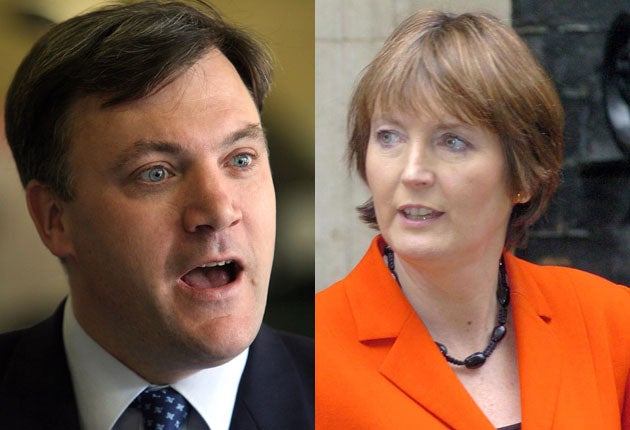Balls under fire for 'soft touch' with the banks

Your support helps us to tell the story
From reproductive rights to climate change to Big Tech, The Independent is on the ground when the story is developing. Whether it's investigating the financials of Elon Musk's pro-Trump PAC or producing our latest documentary, 'The A Word', which shines a light on the American women fighting for reproductive rights, we know how important it is to parse out the facts from the messaging.
At such a critical moment in US history, we need reporters on the ground. Your donation allows us to keep sending journalists to speak to both sides of the story.
The Independent is trusted by Americans across the entire political spectrum. And unlike many other quality news outlets, we choose not to lock Americans out of our reporting and analysis with paywalls. We believe quality journalism should be available to everyone, paid for by those who can afford it.
Your support makes all the difference.Ed Balls fended off criticism of his record from Labour colleagues and Conservative and Liberal Democrat opponents yesterday as he tried to clear the ground for a full-scale attack on the Coalition Government.
The new shadow Chancellor faced questions over his decision to back "light-touch regulation" of the banks and whether he fully supports Ed Miliband's policy that Labour would halve the public deficit over four years.
Mr Balls, promoted to shadow Chancellor after the surprise resignation of Alan Johnson last week, intends to take the battle to George Osborne, the Chancellor, this week over the need for a stronger economic strategy.
But he had to respond to questions about his role as the architect of Gordon Brown's economic strategy and later as the Treasury minister responsible for the City of London. Labour's regime has been partly blamed for the financial crisis which forced the Brown government to bail out the banks.
The Tories seized on remarks by Shadow Cabinet colleagues of Mr Balls over Labour's mistakes on financial regulation. Douglas Alexander said yesterday: "One of the things that we didn't get right was the regulatory system and the supervision of the banks." Mr Alexander and Ed Miliband fell out with Mr Balls after he allegedly tried to blame them for the fiasco over Mr Brown's "non-election" in 2007.
Harriet Harman, Labour's deputy leader, said: "Obviously you don't do everything right when you are in government and you have to learn lessons and one of those is that we should have regulated the banks more strongly and we wait to see what the commission that the Government has set up comes out with on that."
Michael Fallon, the Tories' deputy chairman, said: "Ed Miliband and Douglas Alexander can complain all they like about Labour's terrible record on banks, but Ed Balls, the man responsible for 13 years of regulatory failure, is now back in charge of their economic policy."
Nick Clegg, the Liberal Democrat leader, said: "If you ask yourself who was in charge of the City when they were gorging themselves on bonuses and lending irresponsibly; who allowed the housing market to let rip, to become a casino, pitching thousands and thousands of British families into debt; who was whispering into Gordon Brown's ear Budget after Budget, creating this huge fiscal deficit – the answer to all of those questions is Ed Balls."
Mr Balls hit back by accusing the Coalition Government of going soft on the banks amid signs that an announcement of a new deal with them on bonuses and lending had been shelved because agreement had not been reached.
He said: "The Conservative-led Government has had eight wasted months of inaction and – despite all the promises – there's still no sign of an agreement. This is typical of a Conservative Party which has not been on the case with the banks since it took office and opposed tougher regulation throughout the last decade before the global financial crisis hit."
Allies of Mr Balls insisted that he had already acknowledged Labour's errors. He said last August: "Of course we did not get everything right. We should have ignored Tory and City claims that we were being too tough on financial regulation and been much tougher still."
Mr Balls has backed the Labour leader on halving the deficit over four years, a policy he described as a "mistake" during the leadership election.
Some shadow ministers believe Mr Balls would have strongly opposed such deep cuts if Labour had retained power. But his allies dismiss as a "caricature" the idea that he was a "deficit denier", pointing out that he sided with the then-Chancellor Alistair Darling and Business Secretary Lord Mandelson as they tried to persuade Mr Brown to acknowledge the need for "cuts" in 2009.
Join our commenting forum
Join thought-provoking conversations, follow other Independent readers and see their replies
Comments